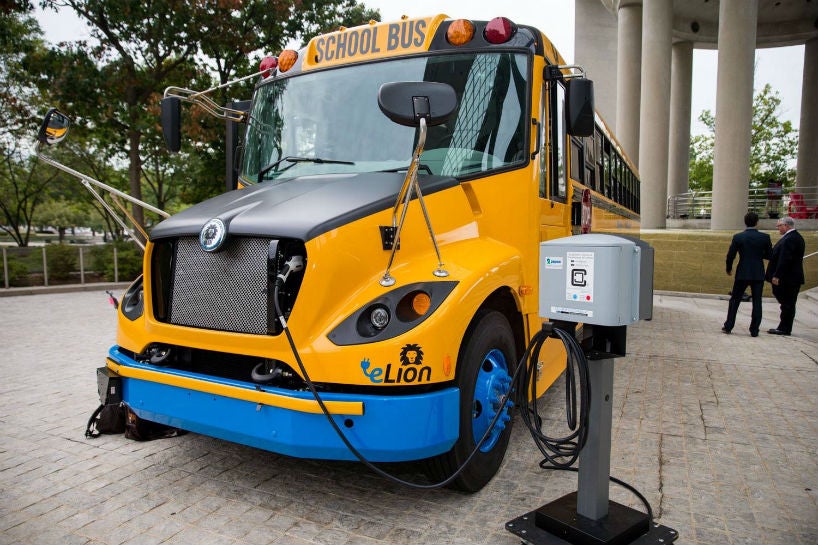
By advancing towards our ambitious GHG reduction target – 37,5 % of 1990 levels in 2030 – Québec demonstrates that proactive States and Regions are part of the solution to fight climate change. To address this challenge, we have decided to set up a carbon market linked with California through the Western Climate Initiative in 2014. In 2017, our carbon market will also be linked with Ontario. Last August, Québec and Mexico signed a joint statement to affirm their desire to widen their collaboration on cap-and-trade. Jurisdictions have many options when it comes to earmark their carbon-pricing revenues; Quebec’s choice, to entirely reinvest the revenues of its carbon market in climate actions, shows that we really understand the urgency of acting immediately and boldly. Thanks to CPLC’s leadership and knowledge-sharing initiatives, we now have an additional opportunity to share our stories and learn from each-other’s experiences with carbon pricing.
The transition towards a low-carbon economy multiplies the challenges and the opportunities we are facing. In this rapidly changing environment, economic actors do not always have a clear vision of their prospects in tomorrow’s economy, nor do they necessarily have all the tools needed to exploit the full range of opportunities.
Investing in our future
This is why Québec made the strategic choice of reinvesting the totality of the revenues generated from its carbon market, estimated at CAN $3.3 billion by 2020, in programs and initiatives that stir innovation and help businesses and citizens make the transition to a lower-carbon world, while improving the quality of life, creating jobs and promoting our expertise worldwide.
These investments help us harness a potential which we simply cannot afford to leave dormant. Québec possesses key assets in cutting-edge sectors, such as renewable energies and transport electrification: Québec has abundant clean electricity resources (99% renewable), a strong industrial base in ground transportation, an internationally recognized expertise in electric motorisation, battery development and charging systems, as well as abundant natural resources used for producing electric vehicle components such as aluminium and lithium.
By investing heavily in electrification as a key measure to reduce our GHG emission from our transport sector, we are adding a sustainable and future-oriented component sto this value chain, and we’re attracting foreign businesses operating in this field to Québec.
Reaping the rewards of our efforts
And we’re proud to show that our efforts have led to concrete results. Already several types of electric vehicles are being produced in Québec: a three-wheeler (Can-AM Spyder), a motorcycle (SORA), an urban bus (Nova Bus), a mining vehicle (Minautor), an industrial modular vehicle (Kargo), and even a fully electric school bus (E-lion). All these projects can create major economic spinoffs for Québec as demand for these revolutionary products is bound to grow. We can also see a flurry of exciting R&D activities around these projects, and dozens of firms working on high-tech components used for electrification.
Every dollar spent by the government has a leveraging effect on private investments , and creates the type of consensus between the government and the private sector that is needed to get real change.
In addition to strengthening the economy and providing sustainable jobs, Québec’s reinvestments in mitigation measures bring concrete benefits to its citizens. For examples, financial assistance is available to replace home fossil-fueled heating systems with systems that use renewable sources of energy. This significantly reduces the heating bills of our families while creating a new demand for electric and geothermal heating systems. Our citizens have also been able to benefit from substantial financial assistance (up to Can$ 8000) to acquire electric or hybrid vehicles; or to install home charging stations at home or in the workplace leading to reduced transportation bills. As a result of these policies and investments, Quebec has been the leading EV market in Canada for the past 5 years.
For the benefit of all
Importantly, all GHG reductions that stem from fossil fuel reductions translate directly into clean air and health benefits for all. This means less asthma for our children today, and less risk cardiovascular diseases as they grow older. For the government, this means less public expenditure for health care, and more money available to invest in this virtuous green circle.
We must also mention our adaptation efforts, the indispensable complement to Québec’s mitigation and green growth efforts, which protect both natural and built environments, while improving the health, safety and security of present and future generations.
From whatever angle we look at it, investing in the fight against climate change makes sense. The biggest challenge of the 21st century is also our biggest opportunity.
By tackling climate change, Québec means business. We want to leave our kids the prosperous economy and the healthy environment they deserve. Let’s do it for them!


Join the Conversation